Library
All resources
1941 – 1960 of 2421 results
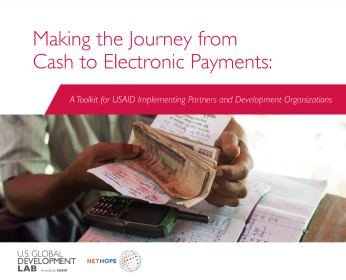
Making the Journey from Cash to Electronic Payments: A toolkit for USAID implementing partners and development organizations
Guidelines and Tools
This Toolkit was created for non-governmental relief and development organizations to guide them in their journey of transitioning from using cash payments to electronic payments in all operational and program payment streams. It is intended to be practical, easy to follow, bite-size, sectional, with...
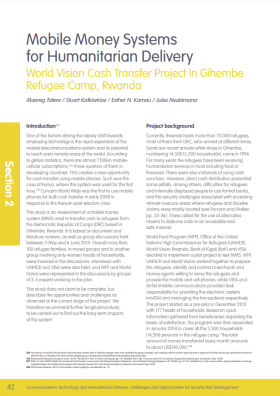
Mobile Money Systems for Humanitarian Delivery: World Vision cash transfer project in Gihembe refugee camp, Rwanda
Report
One of the factors driving the steady shift towards employing technology is the rapid expansion of the mobile telecommunications system and its potential to reach even remote areas of the world. According to global statistics, there are almost 7 billion mobilecellular subscriptions, three-quarters of them...

Information and communications technology response to the Liberia ebola crisis
Report
An information and communication technology assessment recently conducted in Liberia by NetHope and USAID addresses the potential for digital payments in the response to Ebola. The documents looks into the digital payments landscape, describing the banking sector, use of mobile money and remittance firms....

Financing of Cash Transfer Programming
Policy paper
This thematic report has been undertaken as part of a 2013 research study entitled, Is Cash Transfer Programming ‘Fit for the Future’? The research was commissioned by the the CALP Network and undertaken by the Humanitarian Futures Programme (HFP), King’s College London. The overall...

Does one size fit all? The Conditions for Conditionality in Cash Transfers
Presentation
Created in the early 1990s in Latin America, Conditional Cash Transfer programmes (CCTs) are now at the forefront of the international policy debate as one of the most effective social interventions for tackling poverty in developing countries. However, if CCTs have been successful in achieving some of...
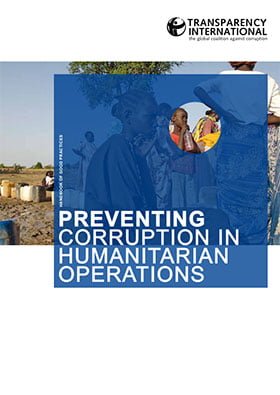
Preventing Corruption in Humanitarian operations
Guidelines and Tools
Transparency International (TI) has long held that the most damaging impact of corruption is the diversion of basic resources from poor people. Corruption in humanitarian aid is the most egregious form of this, as it deprives the most vulnerable poor people, the victims of natural disasters and civil...
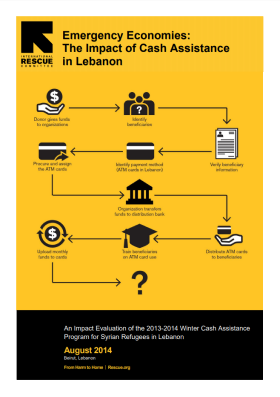
Emergency Economies: The impact of cash assistance in Lebanon
Report
An impact evaluation of the 2013-2014 winter cash assistance program for Syrian refugees in Lebanon. This report describes the impacts of the winter cash transfer program run by UNHCR and partners from November 2013 to April 2014. The program gave $575 USD via ATM cards to 87,700 registered Syrian...

Insufficient Evidence? The Quality and Use of Evidence in Humanitarian Action
Report
This paper (and the ALNAP meeting on which it is based) is underpinned by the sense that ‘at present, humanitarian decisions are often based on poor information’ (DFID, 2012: 5) and are ‘anecdote, rather than evidence, driven’ (Mazurana et al., 2011: 1). Even when evidence is available, decisions...
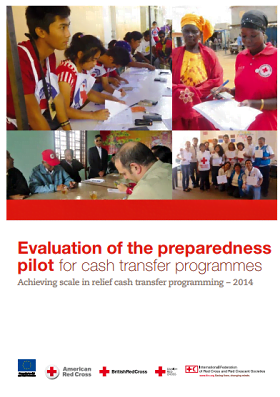
Evaluation of the preparedness pilot for cash transfer programmes – Achieving scale in relief cash transfer programming – 2014
Report
It is recognized that cash transfer programming can be effective in supporting populations affected by disasters in a way that maintains dignity and choice for beneficiaries while stimulating local livelihoods, economies and markets. However, the majority of cash transfer programming has been undertaken...
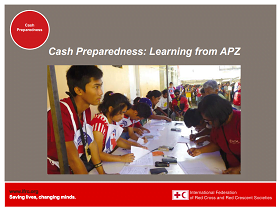
Cash Preparedness: Learning from APZ
Report
Cash Preparedness: Learning from APZ
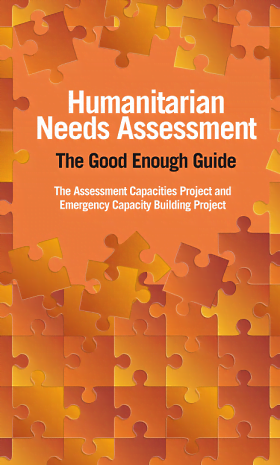
Humanitarian Needs Assessment – The Good Enough Guide
Report
Needs assessment is essential for programme planning, monitoring and evaluation, and accountability, however needs assessment is still a critical weakness of humanitarian response. Organizations urgently need to improve how they do assessments. The humanitarian community has been working on this issue...

Leveling the Playing Field: How do we make social protection more transformative?
Policy paper
Today social protection has a central place in development agenda. It is no longer seen just as protection for the poor but also as a way to promote growth by transforming the poor into a productive force to boost national economies. Nepal adopted this idea earlier than many other countries in the region....
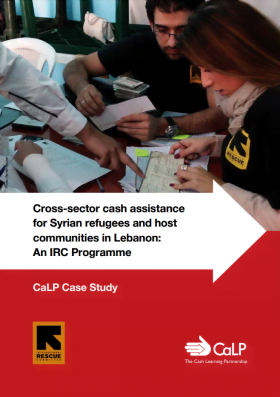
Cross-Sector Cash Assistance for Syrian Refugees and Host Communities in Lebanon: An IRC Programme
Report
Since January 2013, the International Rescue Committee (IRC) has been implementing a project providing humanitarian assistance to the Syrian refugees in Lebanon. This project provided unconditional financial assistance to targeted Syrian refugees and Lebanese host households to help them be better...
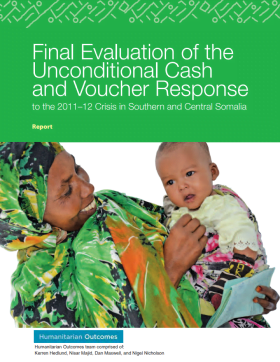
Final Evaluation of the Unconditional Cash and Voucher Response to the 2011–12 Crisis in Southern and Central Somalia
Report
This report sets out to determine the effectiveness of the unconditional cash and voucher interventions in southern and central Somalia. This evaluation however cannot be limited to the interventions at hand. It necessarily considers the broader context that led to the failure of the humanitarian...

Cash Transfers and Resilience: Strengthening Linkages Between Emergency Cash Transfers and National Social Transfer Programmes in the Sahel – Discussion Paper
Report
This discussion paper has been inspired by the exchanges that took place during the course of the learning event. It seeks to extend the discussion to include other actors working within the region, as well as in other regions confronted with the same questions. It proposes an initial approach to the...

Communications Technology and Humanitarian Delivery – Challenges and Opportunities for Security Risk Management
Report
The articles contained in this publication are dispatches from a new frontline in humanitarian action: the digital frontier. All are written by those observing, experiencing and attempting to respond to the challenges created by the digital revolution and the very real threats it is creating for...

Refugee Economies: Rethinking popular assumptions
Report
‘Refugee economies’ remain under-researched and poorly understood and there is a lack of good data available on the economic lives of displaced populations. Existing economic work on refugees tends to focus narrowly on refugee livelihoods or on the impact on host states. Yet, understanding these...
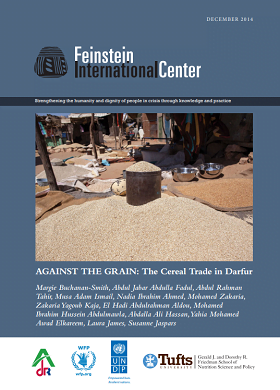
Against the Grain: The Cereal Trade in Darfur
Report
WFP began to pilot food vouchers in Darfur in 2010 as an alternative to general food distribution. The main purpose of the voucher program is greater cost-efficiency for WFP, increased choice for beneficiaries, and strengthening of markets. It is also expected to create market multiplier effects and...

Cash for Work Programmes Standard Operating Procedures – Lebanon
Guidelines and Tools
The document intends to define the roles of responsibilities of all the actors involved in the Cash for Work (hereinafter CfW) activities being developed by Action Contre la Faim (hereinafter ACF) and his partners in Lebanon.
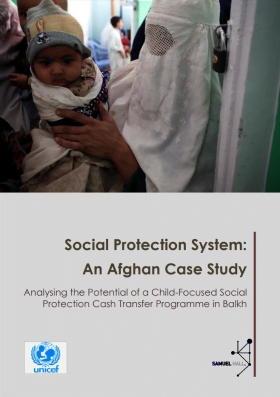
Social Protection System: An Afghan case study, analysing the potential of a child-focused social protection Cash Transfer Programme in Balkh
Report
UNICEF is considering the development of a social protection programme with a specific focus on children, within the already existing framework developed by the World Bank and MoLSAMD. With the end goal of articulating children-sensitive programming with the World Bank’s own safety net programme in...